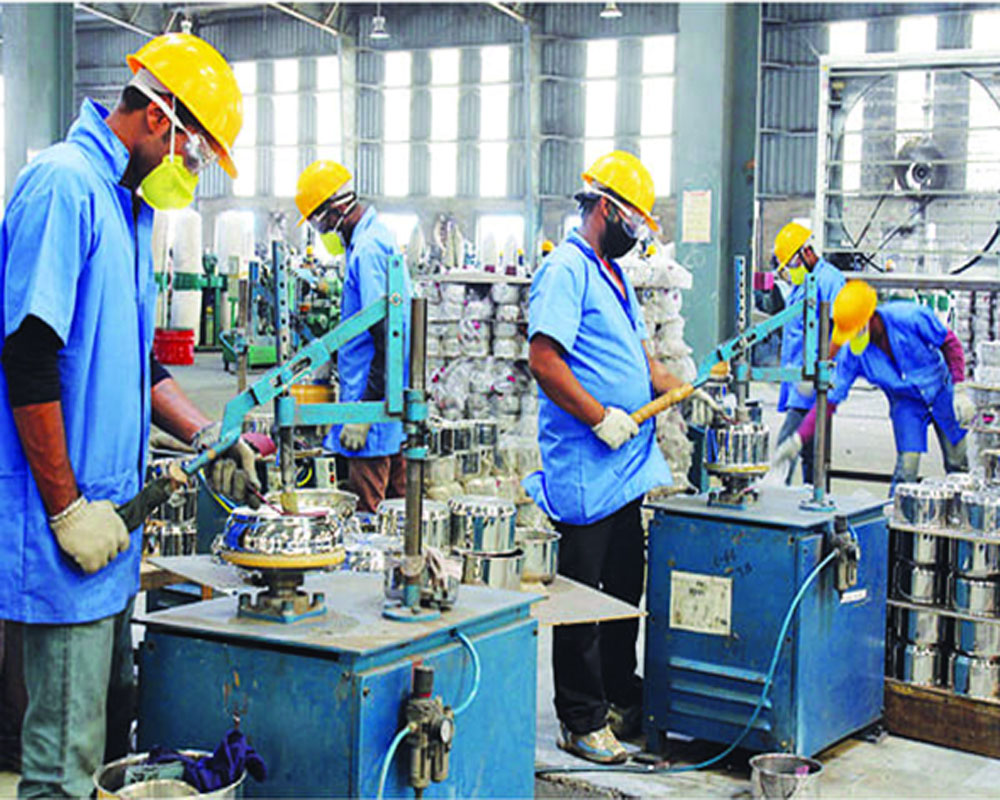Easing the regulatory environment is a pre-condition to encouraging entrepreneurial instincts of the youth
The share of the MSME sector inthe national GDP, GVA and exports isreported as 30.3%, 33.5% & 40-45% respectively. MSMEs provideabout 110 million jobs which is22-23% of the total employmentin India. It isnext highest to Agriculture. Government has declared several schemes which provide capital subsidies, credit guarantee, etc. to MSMEs. Despite this, barely, 15% of MSME units have registered with UDYAM Platform. They have genuine fear of regulatory and tax hazards and hence, they avoid registration. Probably, the policy makers are not fully aware about the actual problems of MSME.
Currently, overall credit, tax and regulatory environment are not so inspiring and the consequential business failure risks are too high. There are several thousands of State and Central laws governing business. Among those, there are more than 25000 clauses envisaging the criminal prosecutions. Huge penalties and prosecutions are imposed even for the delay or non-compliance. Many such provisions are also applicable to MSME. Such regulatory environment crafts fear and entry barriers among the educatedyouth. Therefore, they prefer regular salaried jobs instead of owning MSME.
In a sequel, most micro and small units are operated by persons who failed to get decent employment or whose education does not support regular jobs. Hence, the regulatory easement is the most crucial need for unlocking the vast entrepreneurial capability of Indians and developing MSME potential. India must essentially build a team of “job providers” and resolve the crisis of “job seekers”. That will be the right and productive utilization of human capital in India.
District Industries Centres at each District should be converted as a facilitation centre for all MSMEs. Suitable legislation and directives may be enacted so that; the recommendation of Director of Industries at State level and Development Commissioner at centre becomes a legal binding on other State and Central Departments. That will resolve several problems of MSME and inspire new promoters.
In September 2021, gross bank credit to MSME Sector was Rs.13.20 lakh crores, which is barely 12.04 % of India's gross bank credit of Rs.109.56 lakh crores. Considering the proposed share of MSME in GDP as 40%in next 2/3 years, as announced by NitinGadkari, India must increase the share of MSME credit to 20-22%.For this India should reduceconsumer loan portfolio and SLR loan obligations. Besides banks, State Financial Corporations must be fully activated for the Micro and Small units. Adequate share capital may be infused by states, banks and LIC. Those should also get refinancing facility from the Banks. There should be monthly review for taking corrective action on this front.
Bad loan percentage in MSME is obviously higher comparing to large business due to its small size, marginal experience and poor competitiveness. However, the total volume of such bad loans might be too small comparing to total Bank Credits. Existing Credit guarantee scheme should not be restricted to existing borrowers alone but be extended to new borrowers. Overall guarantee cover amount may be suitably enhanced. However, guarantee cover should be limited to 50% of loan to micro and small units and nil to medium units.NPA norms should be relaxed and loan restructuring may be liberally permitted as per lender's wisdom; that will reduce bad loan.
Due to small size, MSME cannot compete with large business. In addition, MSMEs bear burden of cross subsidy in shape of higher rates of electricity, bank interest and logistics cost. For example, cheaper electricity to residential consumer and farmer is cross-subsidized by MSME. Average interest to MSME is higher comparing to consumer loan, large borrower and SLR loan to Government. MSME can't avail cheaper transportation of Railway due to small consignments. Hence, MSME needs relief on the taxation and export fronts, as under.
The “Products of Micro and Small Enterprises” (Manufacturing & Services)may be separately categorized and the GST rate on the same may be reduced to about 50% level.
GST exemption limit maybe increased to Rs.100 and 50 lakhs for the supplier of goods and services respectively. This will cover about 30-40% of micro units.
GST composition limits may also be increased to Rs.2.5 Crores & 5.0 crores in two slabs and two separaterates of GST may be charged on turnover based upon the fair estimate of value addition. This will cover entire micro units.
Micro units (Other than small & medium) may be exempted from paying Income Tax, somewhat similar to Agriculture income.Export incentives maybe given on thetotal exports of entire goods & services produced by MSME for compensating the higher production cost.
(The writer is an economist and author. The views expressed are personal.)
























